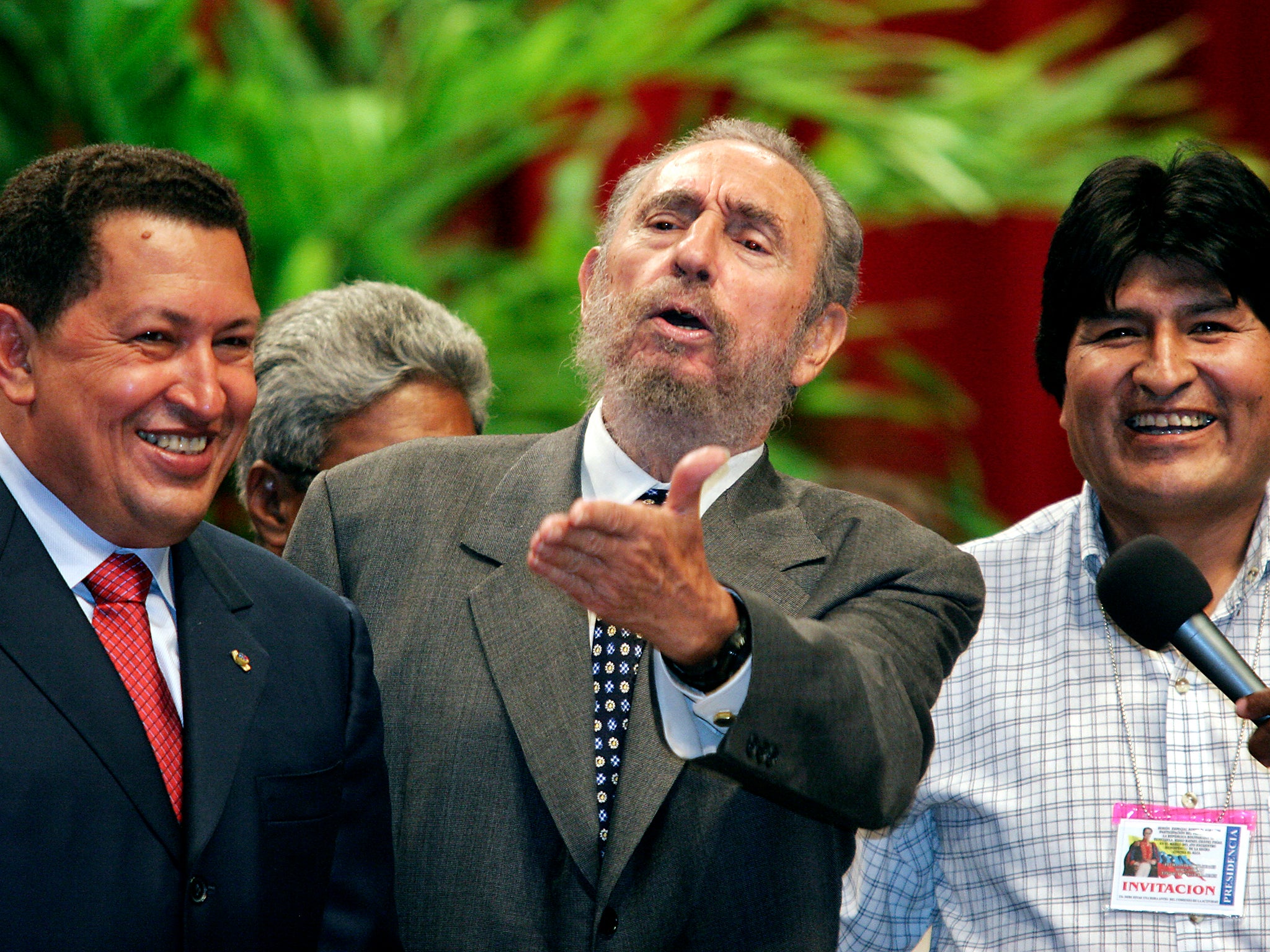Cuba must now look to the future – and their neighbours
It is clear that America’s long punishment of Cuba through a trade embargo and other sanctions is a policy that failed. After all, unlike many other ex-dictators, Castro died peacefully in his own time in his own bed. President Obama was right to recognise that

Your support helps us to tell the story
From reproductive rights to climate change to Big Tech, The Independent is on the ground when the story is developing. Whether it's investigating the financials of Elon Musk's pro-Trump PAC or producing our latest documentary, 'The A Word', which shines a light on the American women fighting for reproductive rights, we know how important it is to parse out the facts from the messaging.
At such a critical moment in US history, we need reporters on the ground. Your donation allows us to keep sending journalists to speak to both sides of the story.
The Independent is trusted by Americans across the entire political spectrum. And unlike many other quality news outlets, we choose not to lock Americans out of our reporting and analysis with paywalls. We believe quality journalism should be available to everyone, paid for by those who can afford it.
Your support makes all the difference.Indisputably charismatic, loathed by some, beloved by many, Fidel Castro ceased to have much practical influence on Cuba’s affairs some years ago, when he passed the torch to his brother Raul. The death of the President of the Cuban Revolution, as he was latterly styled, is, though, a significant moment.
It is apparent that a half-century of Castroism hasn’t delivered the kind of economic success enjoyed by other emerging nations. The communist experiment flopped, as it always has. His supporters are right to point to Castro’s achievements in literacy, education, health and social progress. Yet while Cuba enjoys some of the best and free medical services for a country of its size and wealth, it also has one of the lowest rates of internet usage. The island has been cut off from the rest of the world economy for so long that, like the rule of the Castro clan, it is almost taken for granted. It should not be.
Emerging from communism as Cuba now is, its leaders can at least look to the different experiences of former Comecon friends and allies, not least Russia, for warnings and for inspiration. Most of the former Soviet satellites in eastern Europe, for example, have made a relatively orderly and peaceful transformation into free liberal multi-party democracies. Cuba has no reason to fear a free media, free trade unions and free trade with her neighbours (assuming her neighbours want it). Tourism, currency reform and an influx of investment would offer an immediate boost to the Cuban economy.
It is also clear that America’s long punishment of Cuba through a trade embargo and other sanctions is a policy that failed. After all, unlike many other ex-dictators, Castro died peacefully in his own time in his own bed. President Obama was right to recognise that and to seek to engage with a Cuba that was plainly once again looking at to the world, and in particular at its uneasy relationship with its powerful superpower neighbour, a mere 90 miles distant. The danger, seemingly already confirmed by a characteristically thoughtless and tasteless tweet, is that Donald Trump will take hope for Cuba and turn it into hate.
So, emerging from the shadow of the long Castro regime, Cuba has much to gain, and America also has the opportunity to put the exploding cigars, the missile crisis and the Bay of Pigs into the history books, along with Fidel’s speeches. It would be tragic if misunderstandings and diplomatic blunders wrecked what would be a transformative rebuilding of relations between two nations who have more in common than they care to admit.
Join our commenting forum
Join thought-provoking conversations, follow other Independent readers and see their replies
Comments